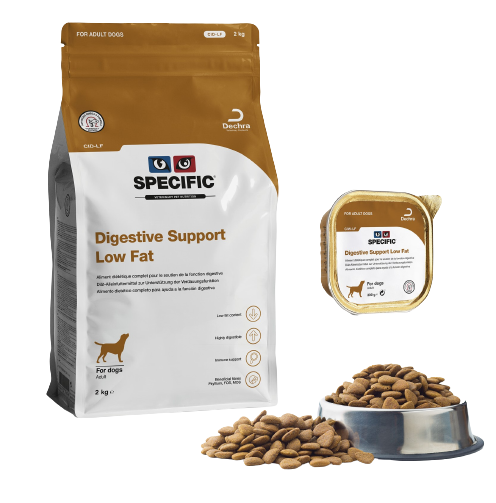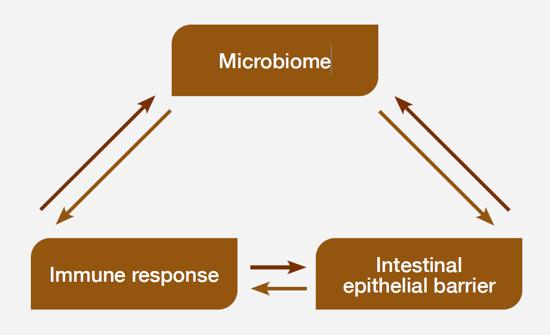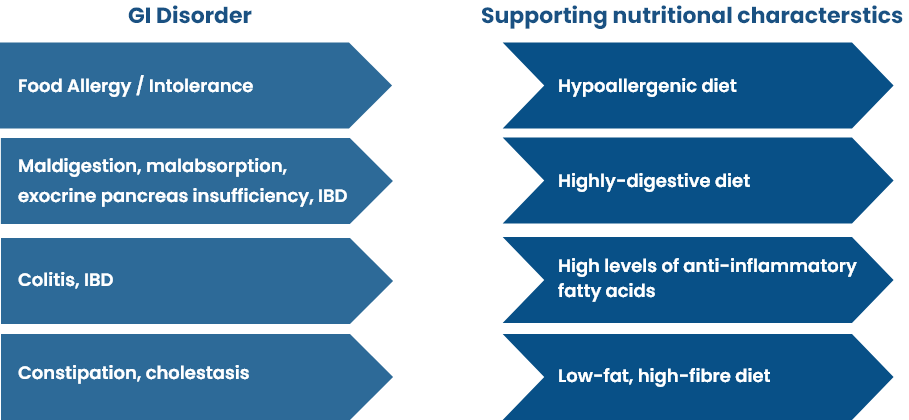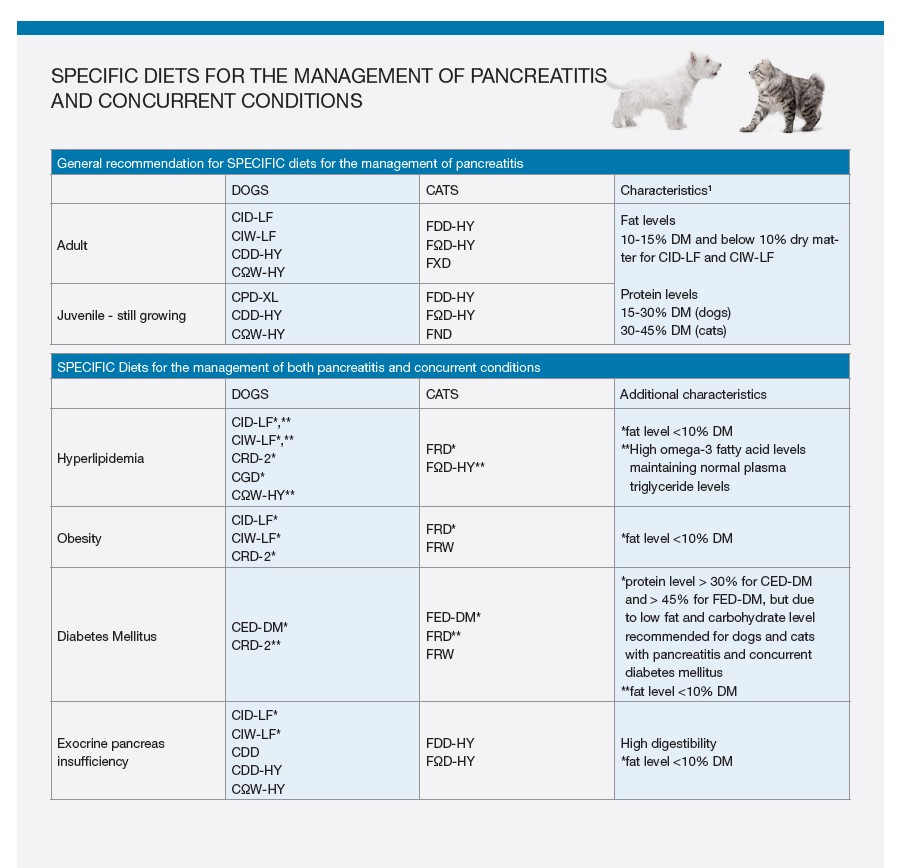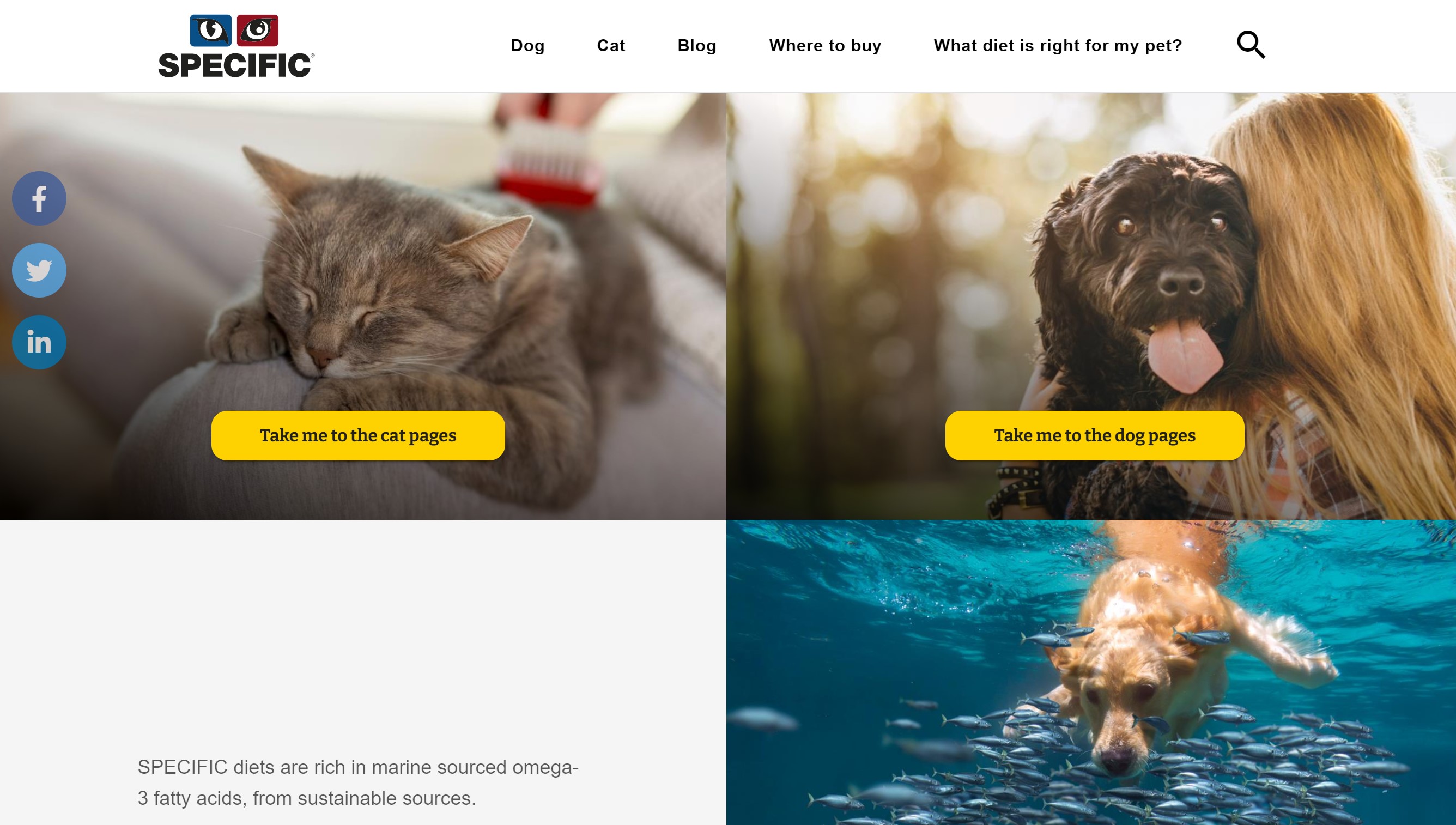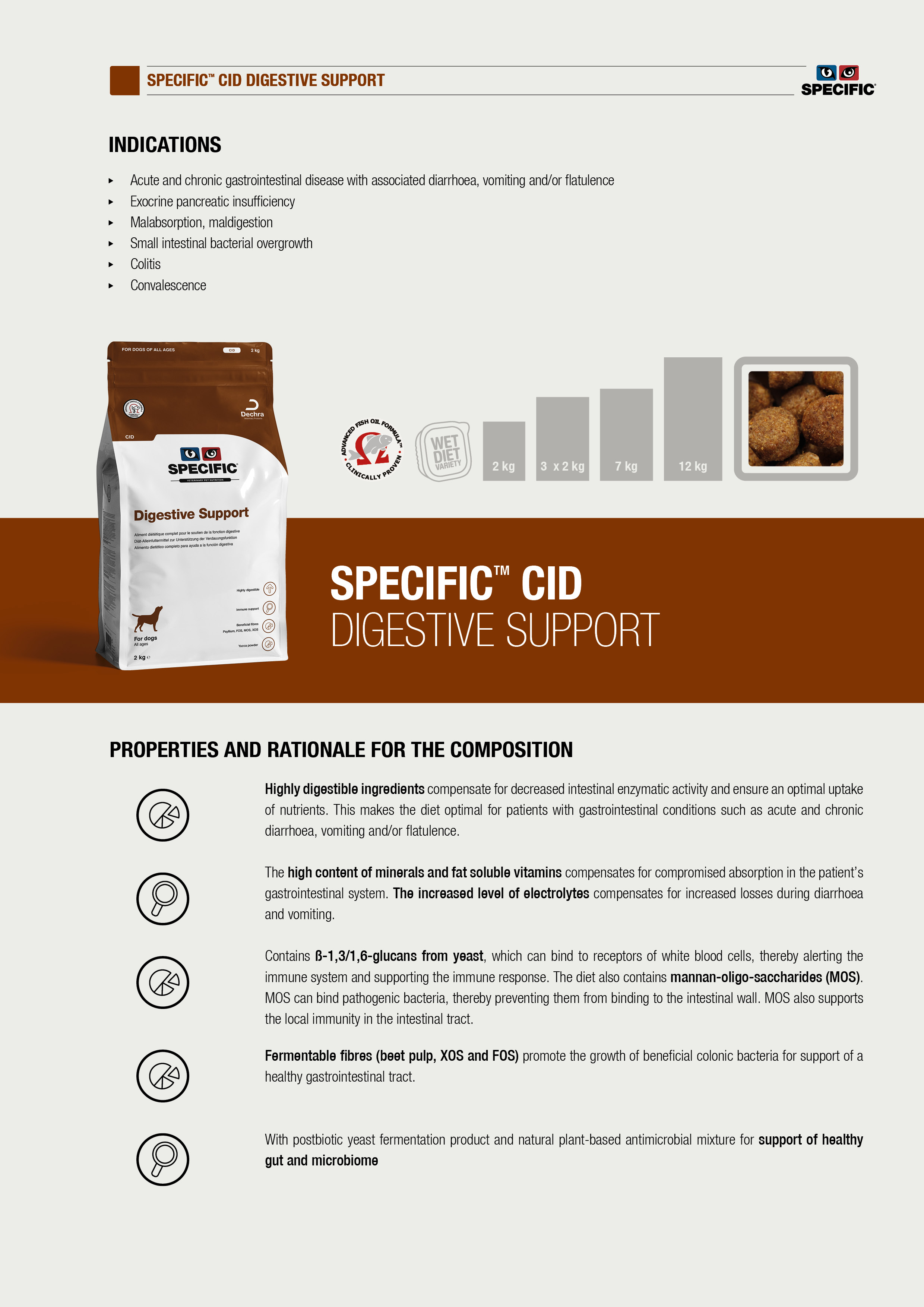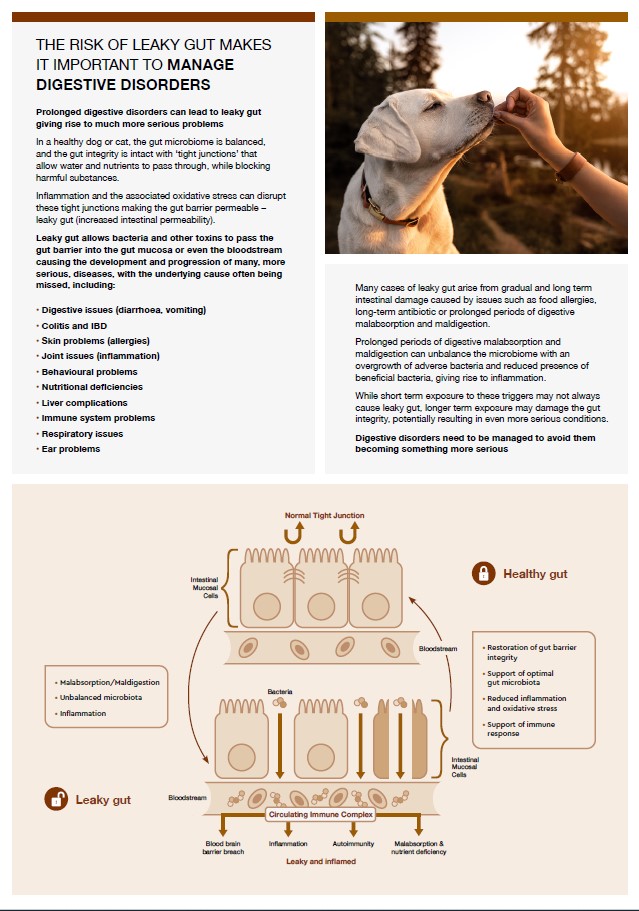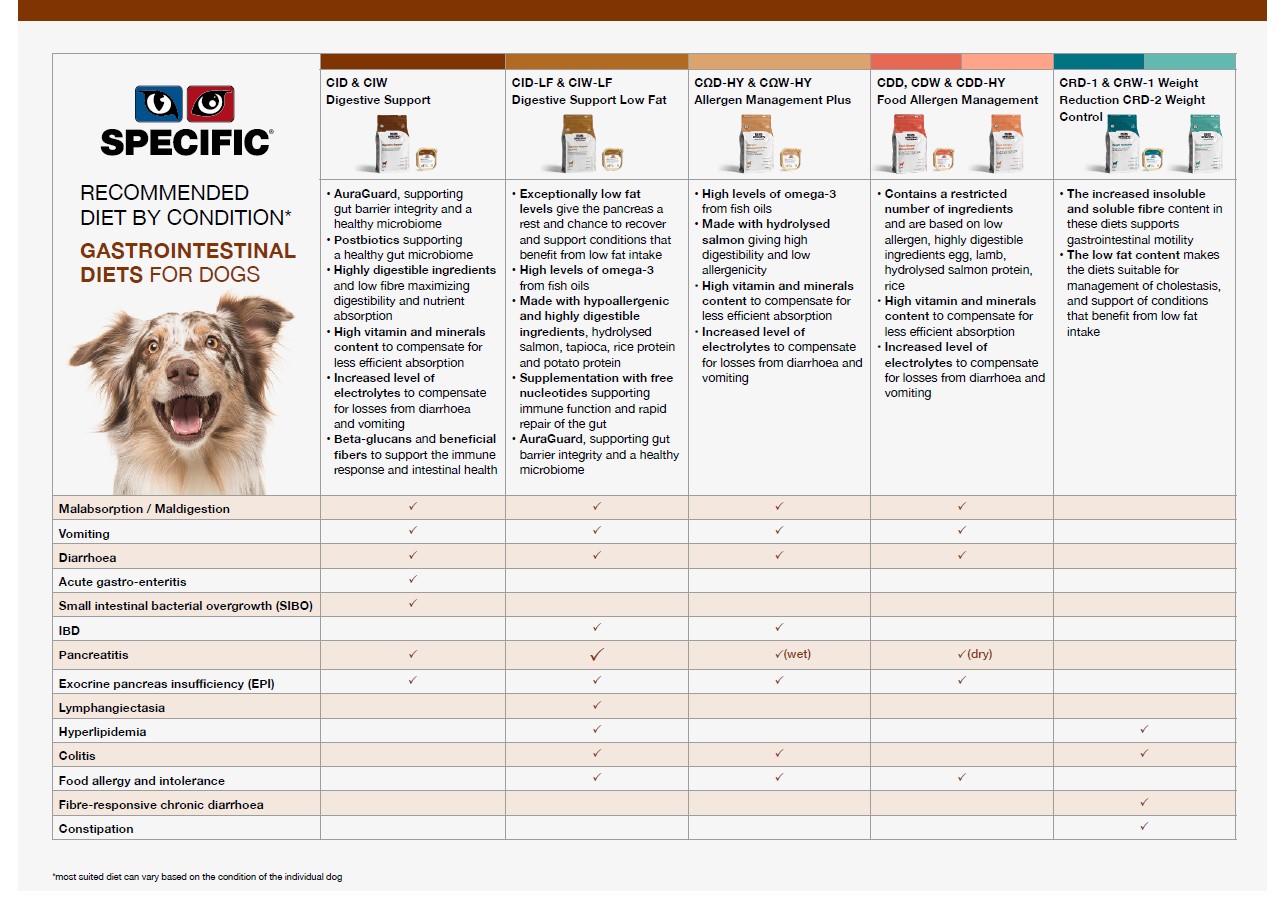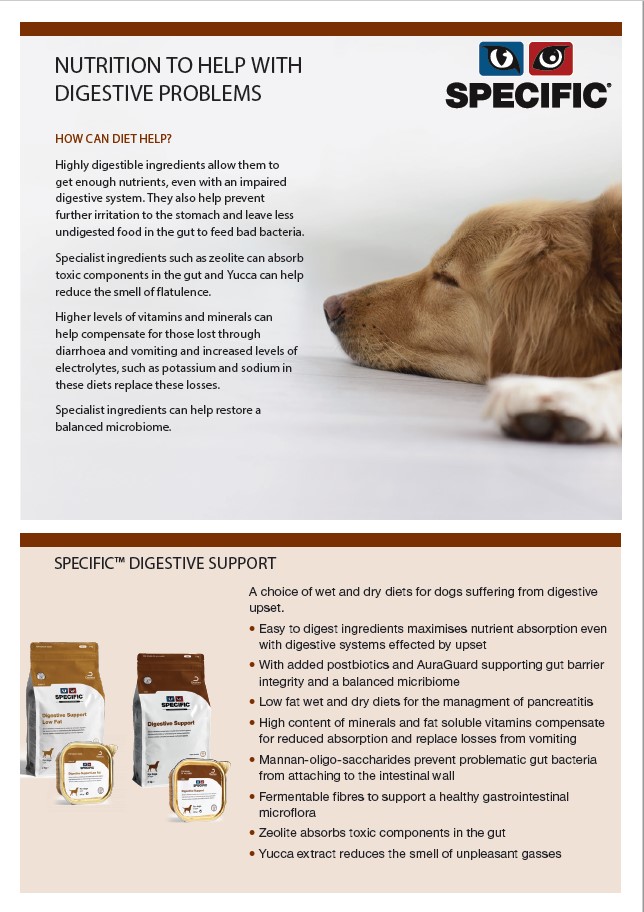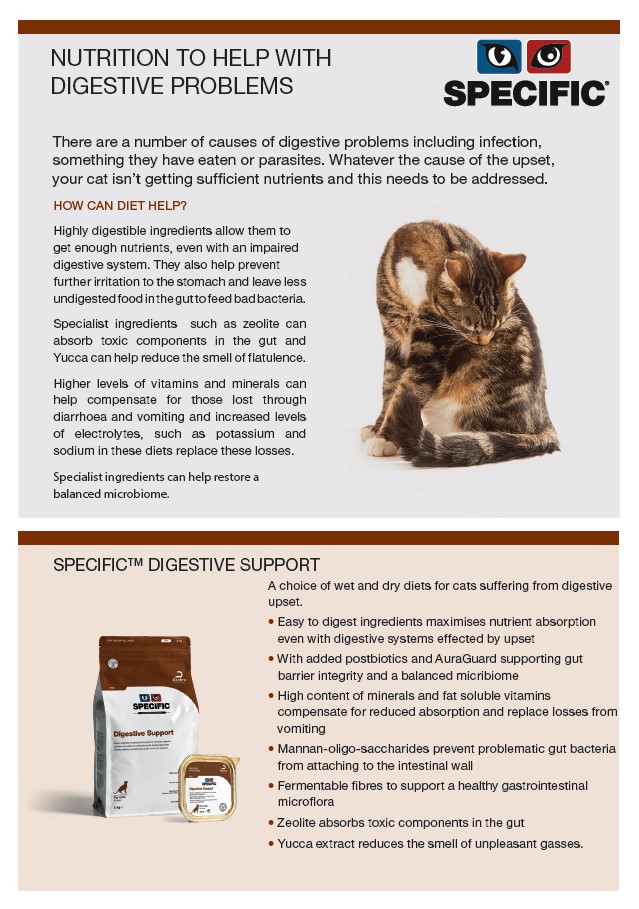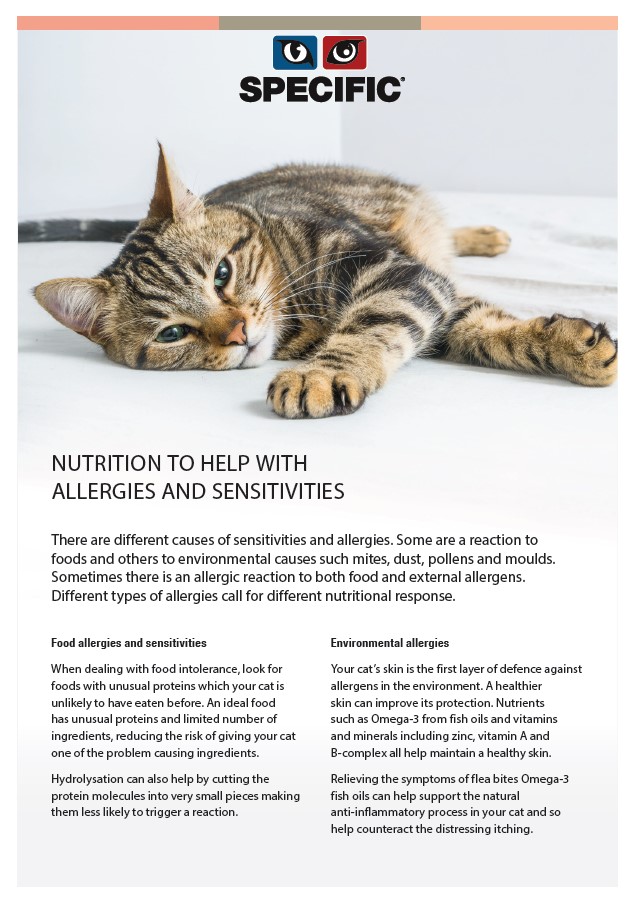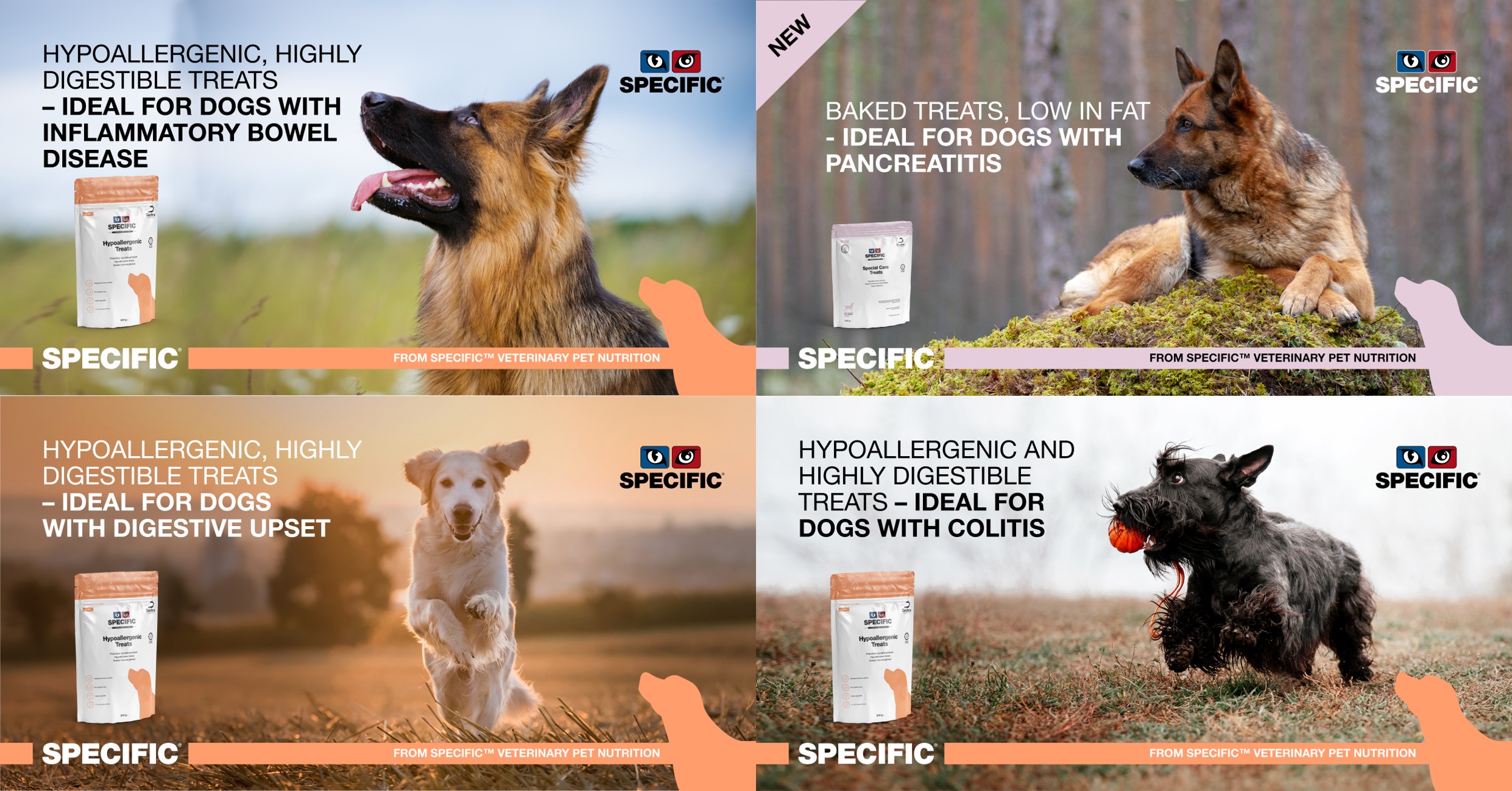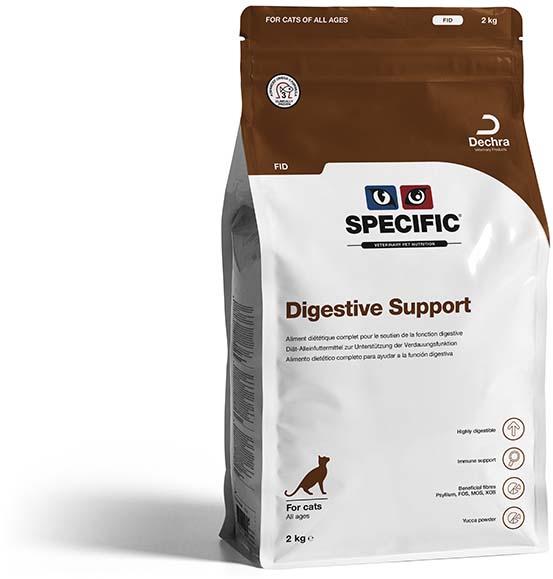Prolonged digestive disorders can lead to leaky gut giving rise to much more serious problems.
In a healthy dog or cat, the gut microbiome is balanced, and the gut integrity is intact with ‘tight junctions’ that allow water and nutrients to pass through, while blocking harmful substances.
Inflammation and the associated oxidative stress can disrupt these tight junctions making the gut barrier permeable – leaky gut (increased intestinal permeability).
Leaky gut allows bacteria and other toxins to pass the gut barrier into the gut mucosa or even the bloodstream causing the development and progression of many, more serious, diseases, with the underlying cause often being missed, including:
- Digestive issues (diarrhoea, vomiting)
- Colitis and IBD
- Skin problems (allergies)
- Joint issues (inflammation)
- Behavioural problems
- Nutritional deficiencies
- Liver complications
- Immune system problems
- Respiratory issues
- Ear problems
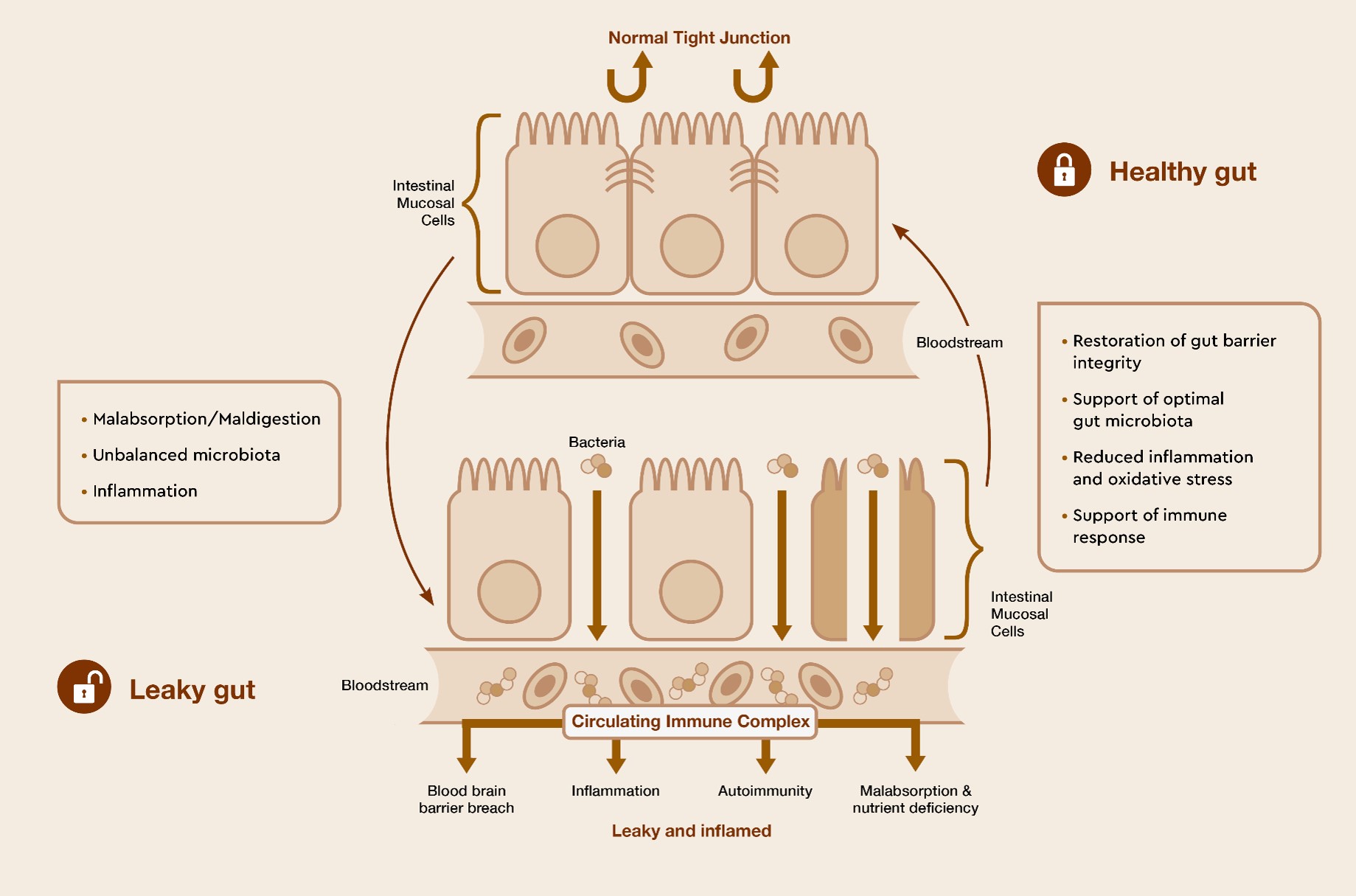
Many cases of leaky gut arise from gradual and long term intestinal damage caused by issues such as food allergies, long-term antibiotic or prolonged periods of digestive malabsorption and maldigestion. Prolonged periods of digestive malabsorption and maldigestion can unbalance the microbiome with an overgrowth of adverse bacteria and reduced presence of beneficial bacteria, giving rise to inflammation.
While short term exposure to these triggers may not always cause leaky gut, longer term exposure may damage the gut integrity, potentially resulting in even more serious conditions.
Digestive disorders need to be managed to avoid them becoming something more serious.









